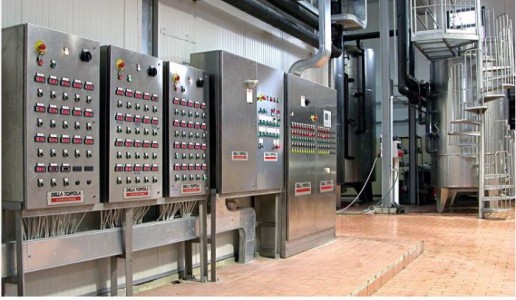Virtuous enology

Modern enology seeks to enhance the value of a wine’s origin and characteristics, its “territoriality”, which is not only a positive thing but it is what is the basis of many local and non-local wines.
Sometimes talking about enology and the role of the enologist can be a slippery slope. This because there are those who think that any and everything that has to do with production technology and research in regard to winemaking is artificial and unnatural, that they only contribute to “contrive” wines, standardize them and betray their origins and characteristics.
It doesn’t seem to matter that certain methods to make wines that are much loved and held in high regard are the result of refined enological protocols. Making sparkling wines, for example, involves following practices in the vineyard, during fermentation and secondary fermentation that, if not carried out with great attention, experience and technical know-how, will not create a quality product. Champagne, Franciacorta, Trentodoc and even many Prosecco are the product of precise processes that are monitored with great care at every stage. They are the result of applying extensive enological expertise. The same can be said about making wines from grapes that have raisinated, those that offer precise varietal characteristics.
 On the other hand, there are also those who believe that the comeback of many wines made from traditional varietals, which had all but disappeared due to the difficulty in growing and making wine from them, was the result of a better application of enological methods. This led to the modification of the period of maceration for many reds, involved the application techniques like delestage with the elimination of grape seeds, and even a careful contact between the must and the skins in the case of white grapes, using techniques that run from cryomaceration to the production, using certain varietals, of authentic orange wines.
On the other hand, there are also those who believe that the comeback of many wines made from traditional varietals, which had all but disappeared due to the difficulty in growing and making wine from them, was the result of a better application of enological methods. This led to the modification of the period of maceration for many reds, involved the application techniques like delestage with the elimination of grape seeds, and even a careful contact between the must and the skins in the case of white grapes, using techniques that run from cryomaceration to the production, using certain varietals, of authentic orange wines.
What is all boils down to is that there exists a virtuous enology that seeks to enhance the value of a wine’s origin and characteristics, what is sometimes referred as a wine’s “territoriality”. This is not only a positive thing but it is the basis of many local and non-local wines. There are many young producers who have studied hard at leading winemaking institutes in Italy and abroad and this has not resulted in them betraying wines and origins but, in fact, helps them interpret them better.
For sure, there are also some invasive techniques, standardized protocols and wines massacred by an excessive application of enological practices. These exist in all sectors of food production and elsewhere throughout the world. Genetic research, for example, is making a cure for cancer possible and has nothing to do with the abominable Dr. Mengele.
I would not like to see criticism of enological advancement result in, as the saying goes, the baby being thrown out with the bath water. Unfortunately, some of the arguments I hear and read appear to be aimed at doing just this.

 Italiano
Italiano






